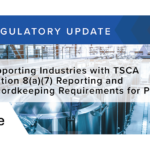
In today’s world, environmental compliance has become a critical aspect of business operations. Companies across various industries are required to adhere to strict environmental regulations to ensure the protection of our planet and its resources. Lubbock, with its commitment to sustainability and responsible practices, has placed significant emphasis on environmental compliance auditing. This article aims to provide a comprehensive overview of environmental compliance auditing in Lubbock, including its definition, key elements, role in ensuring compliance, and the challenges faced.
Understanding Environmental Compliance
Definition and Importance of Environmental Compliance
Environmental compliance refers to the adherence of businesses and organizations to environmental laws, regulations, and standards implemented by local, state, and federal authorities. It involves ensuring that operations, processes, and activities are in alignment with environmental requirements to minimize negative impacts on the environment. Compliance is of paramount importance to protect ecosystems, conserve natural resources, and safeguard public health.
Environmental compliance is not just a legal obligation but also a moral responsibility that companies bear towards the planet and future generations. By complying with environmental regulations, businesses contribute to the overall well-being of society and demonstrate their commitment to sustainable practices. Moreover, maintaining environmental compliance can enhance a company’s reputation, attract environmentally conscious customers, and even lead to cost savings through improved efficiency and resource management.
Key Elements of Environmental Compliance
Environmental compliance encompasses various elements that organizations need to consider. Firstly, it involves understanding and meeting all applicable environmental laws and regulations specific to Lubbock. Additionally, businesses must implement comprehensive environmental management systems, including policies, procedures, and controls. Regular monitoring, reporting, and record-keeping are vital to track compliance and identify any areas for improvement. Finally, organizations need to maintain transparency and engage in effective communication related to their environmental performance.
Another crucial element of environmental compliance is the concept of continuous improvement. Companies should not view compliance as a one-time task but rather as an ongoing commitment to evolving environmental standards and best practices. By regularly reviewing and updating their environmental policies and procedures, organizations can stay ahead of regulatory changes and proactively address emerging environmental challenges. Embracing a culture of continuous improvement not only ensures compliance but also fosters innovation and resilience in the face of environmental uncertainties.
The Role of Auditing in Environmental Compliance
The Purpose of Environmental Audits
Environmental audits play a crucial role in assessing an organization’s compliance with environmental regulations. They involve a systematic evaluation of operations, practices, and procedures to ensure they meet legal requirements and industry standards. Environmental audits help identify potential risks, assess environmental impacts, and recommend corrective measures, thereby ensuring sustainable practices and reducing environmental liabilities.
Furthermore, environmental audits are essential for enhancing transparency and accountability within organizations. By conducting regular audits, companies can demonstrate their commitment to environmental stewardship and responsible business practices. These audits also provide valuable insights into areas for improvement and help foster a culture of environmental awareness and compliance among employees.
Types of Environmental Audits
There are several types of environmental audits, each serving a specific purpose. Compliance audits focus on evaluating adherence to environmental laws and regulations. These audits ensure that organizations are meeting all permit requirements, managing hazardous materials correctly, and complying with reporting obligations. Management system audits assess the effectiveness of an organization’s environmental management system, including policy implementation, performance monitoring, and continuous improvement efforts. Lastly, due diligence audits are conducted during mergers, acquisitions, or property transactions to assess potential environmental liabilities.
Moreover, environmental audits can also help organizations identify opportunities for cost savings and operational efficiency. By evaluating resource usage, waste management practices, and energy consumption, companies can implement strategies to reduce their environmental footprint and lower operational expenses. This proactive approach not only benefits the environment but also contributes to long-term financial sustainability and competitiveness in the market.
Lubbock’s Approach to Environmental Compliance Auditing
Local Environmental Regulations in Lubbock
Lubbock has a robust set of environmental regulations in place to protect its unique ecosystem and ensure sustainable growth. These regulations cover various aspects, including air quality, water management, waste management, and hazardous substance handling. Businesses operating in Lubbock must navigate and comply with these regulations to mitigate environmental risks and contribute to the city’s ecological well-being.
Lubbock’s Auditing Process and Procedures
Lubbock’s approach to environmental compliance auditing involves a comprehensive and structured process. Audits are typically conducted by qualified environmental professionals who have expertise in the local regulatory framework. The process begins with planning and scoping, where the auditors define the objectives, criteria, and scope of the audit. Next, data collection and analysis take place, involving site visits, interviews, document reviews, and data validation. Based on the findings, auditors provide recommendations for improvement and develop corrective action plans. Finally, follow-up audits may be conducted to ensure implementation and track progress.
Challenges in Environmental Compliance Auditing
Common Obstacles in Compliance Auditing
Environmental compliance auditing can present various challenges for organizations aiming to meet regulatory requirements. Limited resources, both financial and human, can hinder a business’s ability to conduct thorough audits and implement necessary changes. Complexity in interpreting and staying updated with evolving regulations poses difficulties for businesses, potentially leading to inadvertent non-compliance. Moreover, logistical challenges related to data collection, site visits, and coordination with multiple stakeholders can also impede auditing processes.
Overcoming Auditing Challenges
Despite the challenges, businesses can take proactive measures to overcome obstacles in environmental compliance auditing. Invest in training and development to enhance internal capabilities and knowledge of environmental regulations. Utilize technology solutions and software tools to streamline data collection, analysis, and reporting processes. Collaborate with industry peers, regulatory bodies, and environmental consultants to share best practices and gain insights into compliance strategies. Finally, adopt a proactive and continuous improvement mindset to address non-compliance issues promptly.
The Future of Environmental Compliance Auditing in Lubbock
Emerging Trends in Environmental Auditing
Lubbock, like many other cities, anticipates several emerging trends in environmental compliance auditing. The increasing focus on sustainability and green practices is expected to drive the integration of environmental audits into companies’ overall sustainability strategies. Digitalization and automation will likely play a significant role in streamlining auditing processes, enhancing data accuracy, and providing real-time insights. Furthermore, audits conducted by third-party organizations may become more common, ensuring impartiality and validating compliance efforts.
Lubbock’s Plans for Future Compliance Measures
Lubbock is committed to continually improving its environmental compliance measures. The city plans to strengthen its environmental regulations to align with evolving standards and address emerging environmental challenges. Lubbock also intends to enhance collaboration between businesses, community organizations, and regulatory agencies to foster a culture of environmental responsibility. Furthermore, increased public awareness and education programs will play an instrumental role in promoting compliance and sustainability practices throughout the region.
Conclusion
In conclusion, environmental compliance auditing forms an integral part of Lubbock’s commitment to sustainable development and responsible business practices. By understanding the definition, key elements, and importance of environmental compliance, organizations can navigate the complex regulatory landscape effectively. Lubbock’s approach to environmental compliance auditing, coupled with the city’s local regulations, ensures businesses adhere to the highest environmental standards. Despite challenges, proactive measures and continuous improvement efforts will pave the way for a future where environmental audits in Lubbock become more streamlined, efficient, and integral to fostering environmental stewardship.
As you consider the importance of environmental compliance auditing in Lubbock, remember that expert guidance is key to navigating this complex area. ESE Partners, with our extensive experience and offices across Texas, stands ready to assist you in meeting and exceeding regulatory standards. Our team of environmental engineers and scientists is equipped to provide tailored solutions for your unique challenges, from due diligence to compliance and beyond. We are committed to moving your business forward responsibly and enhancing community quality of life through innovative environmental problem solving. Don’t let compliance concerns slow you down. Request A Proposal today and partner with us for a sustainable future.








